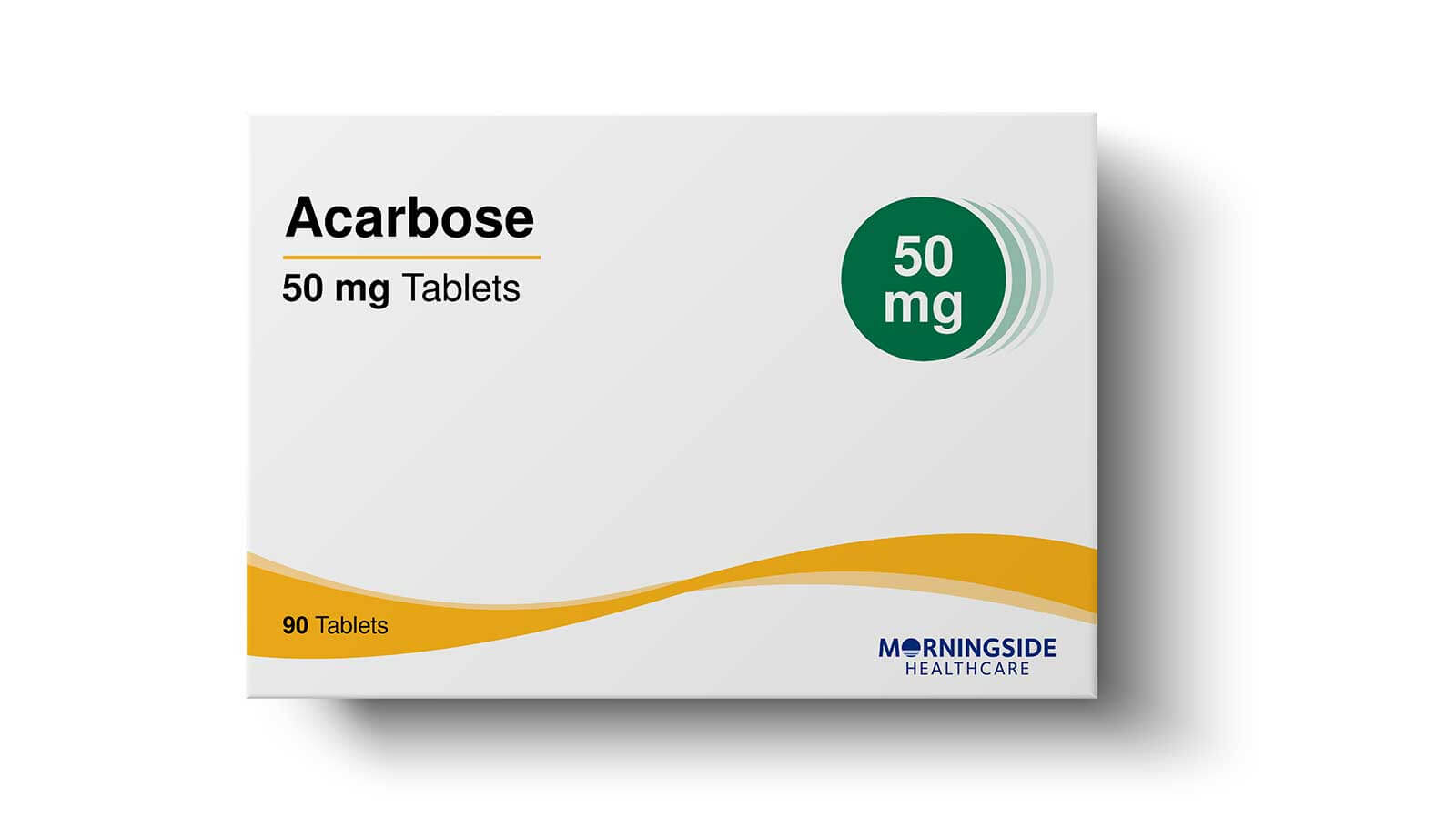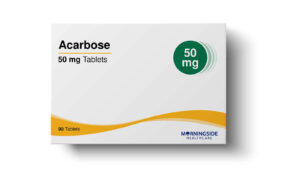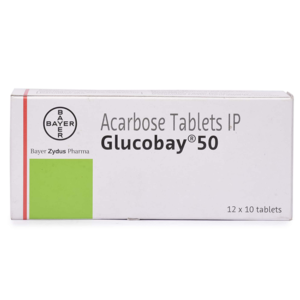
Acarbose
Acarbose serves as an oral medication that aids in the control of type 2 diabetes. It helps control blood sugar levels by delaying the digestion and absorption of carbohydrates in the small intestine. This profile provides a detailed look at Acarbose, its mechanism of action, uses, side effects, dosage, and popular brands.
What is Acarbose?
Acarbose is an alpha-glucosidase inhibitor, primarily used to manage blood glucose levels in patients with type 2 diabetes. By slowing down the breakdown of carbohydrates, it prevents rapid blood sugar spikes post-meal.
Mechanism of Action of Acarbose
- Inhibits Alpha-Glucosidase: It works by inhibiting enzymes that break down complex carbohydrates into simple sugars in the small intestine.
- Slows Absorption: It delays the absorption of glucose into the bloodstream, resulting in a more gradual rise in blood sugar after eating.
Uses of Acarbose
It is used for:
- Type 2 Diabetes: Helps to control postprandial (after-meal) blood glucose levels.
- Combination Therapy: Moreover, it can be combined with other antidiabetic medications, including insulin or oral hypoglycemics, to enhance control over blood sugar.
Dosage of Acarbose
The typical starting dosage for adults is:
- Initial Dose: 25 mg three times daily with meals.
- Maintenance Dose: 50–100 mg three times daily based on blood sugar control.
- Maximum Dose: 300 mg/day (100 mg per meal).
Dosage Adjustments
- Dose modifications are required for individuals with compromised renal function.
- Start at a low dose and gradually increase to minimize gastrointestinal side effects.
Side Effects of Acarbose
Common Side Effects:
- Flatulence
- Diarrhea
- Abdominal discomfort
Severe Side Effects:
- Liver Enzyme Elevation: Monitor Liver function regularly.
- Hypoglycemia: More common when combined with other diabetes medications.
Contraindications of Acarbose
Don’t use in individuals with:
- Hypersensitivity to the drug.
- Inflammatory bowel disease or other gastrointestinal disorders.
- Severe renal impairment.
Drug Interactions of Acarbose
- The concurrent use of insulin and sulfonylureas may elevate the likelihood of hypoglycemia.
- Digestive enzymes: May decrease it’s efficacy.
Popular Brands of Acarbose
| Brand Name | Manufacturer | Dosage Form | Dosage (mg) | Indications |
| Glucobay | Bayer | Tablet | 25, 50, 100 | Type 2 Diabetes |
| Prandase | Roche | Tablet | 25, 50, 100 | Type 2 Diabetes |
| Diastabol | Sun Pharma | Tablet | 25, 50, 100 | Type 2 Diabetes |
| Acarbose Actavis | Actavis | Tablet | 25, 50, 100 | Type 2 Diabetes |
| Glucoob | Alkem | Tablet | 25, 50, 100 | Type 2 Diabetes |
Precautions
- Pregnancy: Utilize only when the advantages surpass the potential risks.
- Liver Function: Periodic liver enzyme monitoring is necessary.
- Hypoglycemia Management: In case of hypoglycemia, use glucose (not sucrose) to raise blood sugar levels.
Conclusion
Acarbose is an effective medication for managing type 2 diabetes, especially in controlling postprandial blood glucose. It is typically well accepted; however, it may lead to gastrointestinal adverse effects. Thus, monitoring is crucial for long-term use, especially liver function and blood sugar levels.

